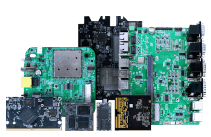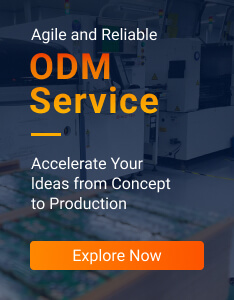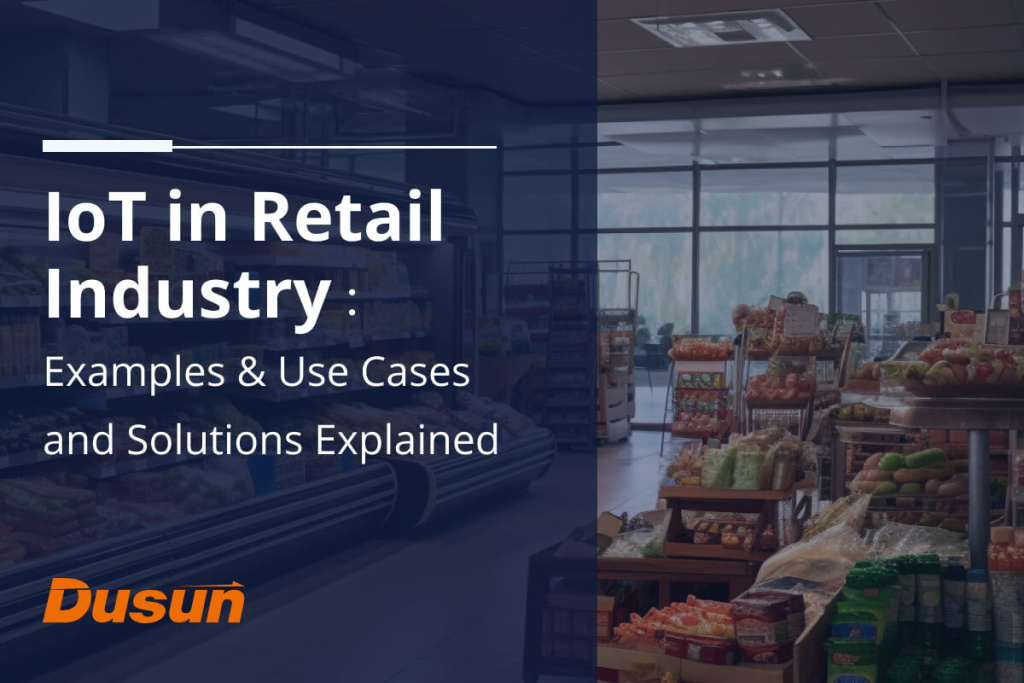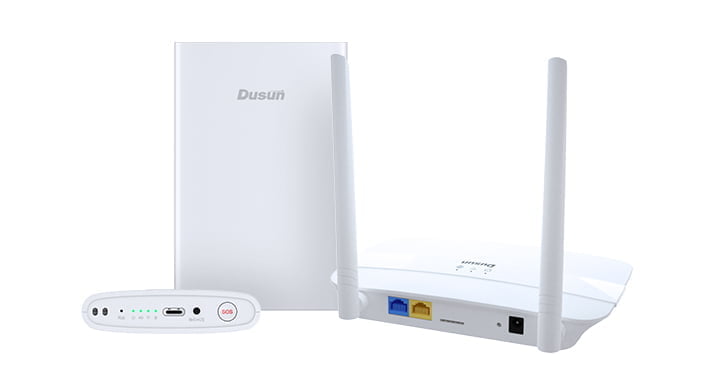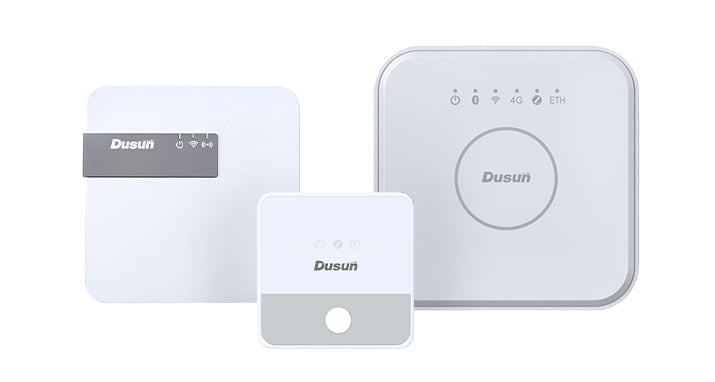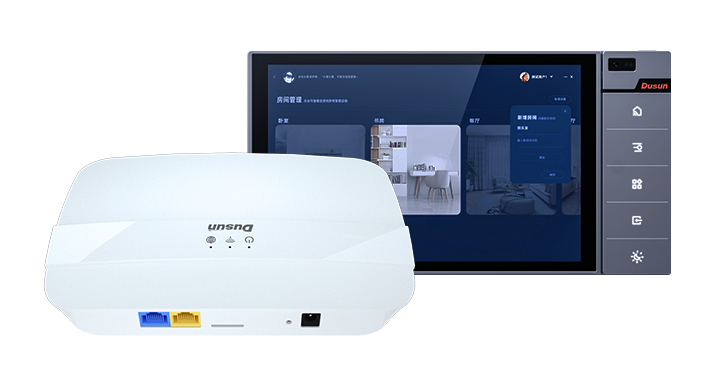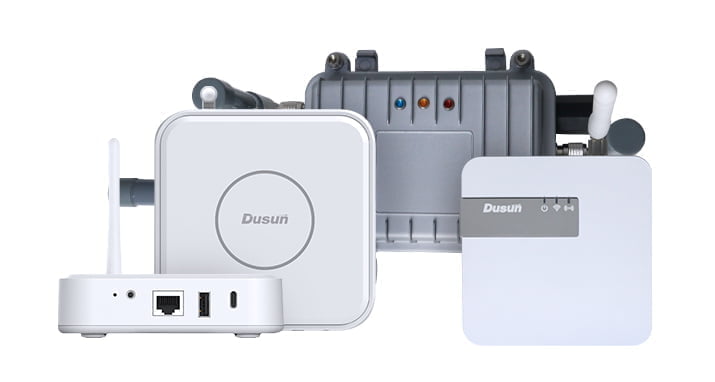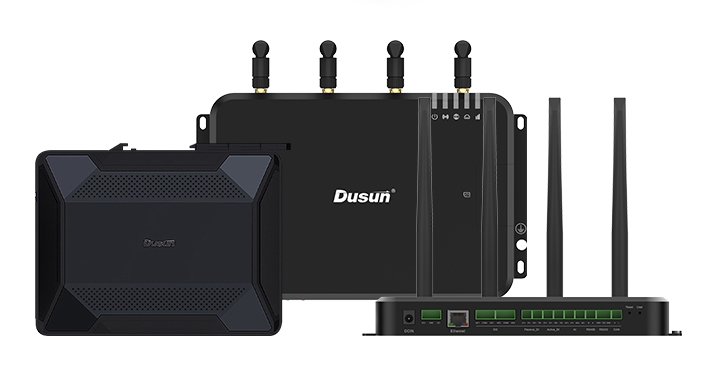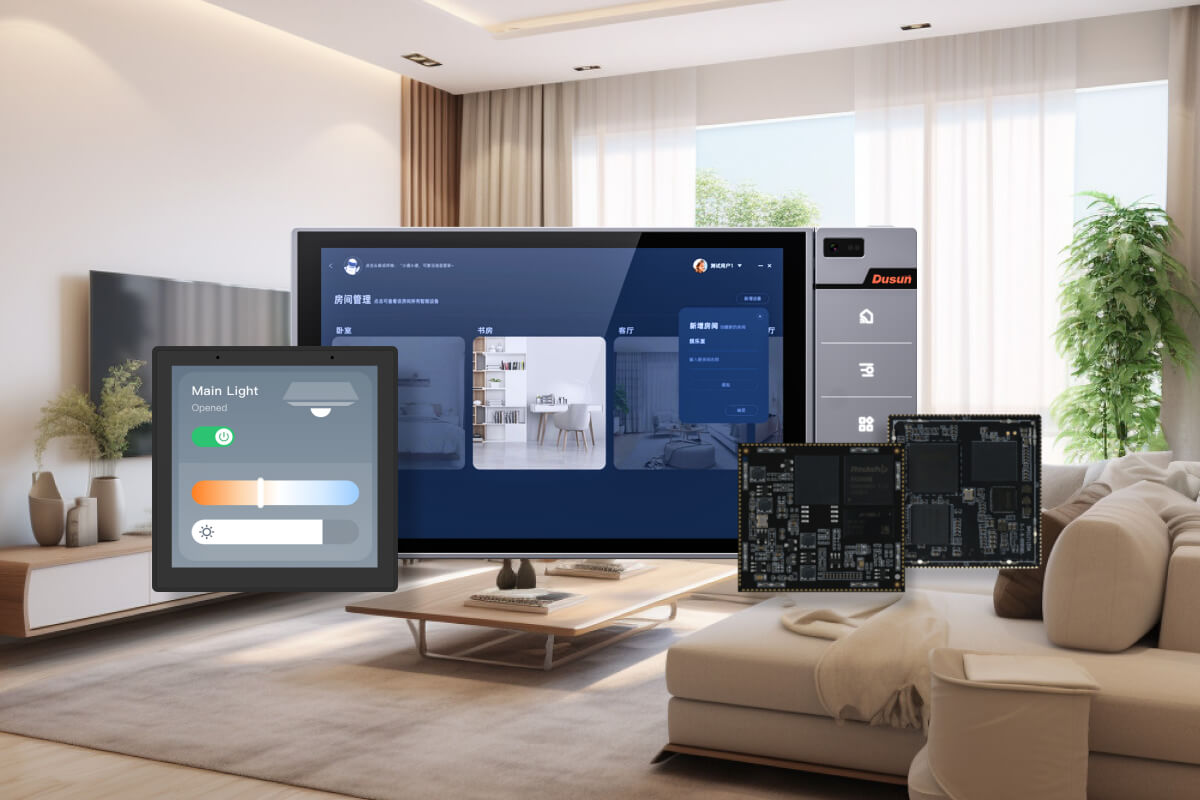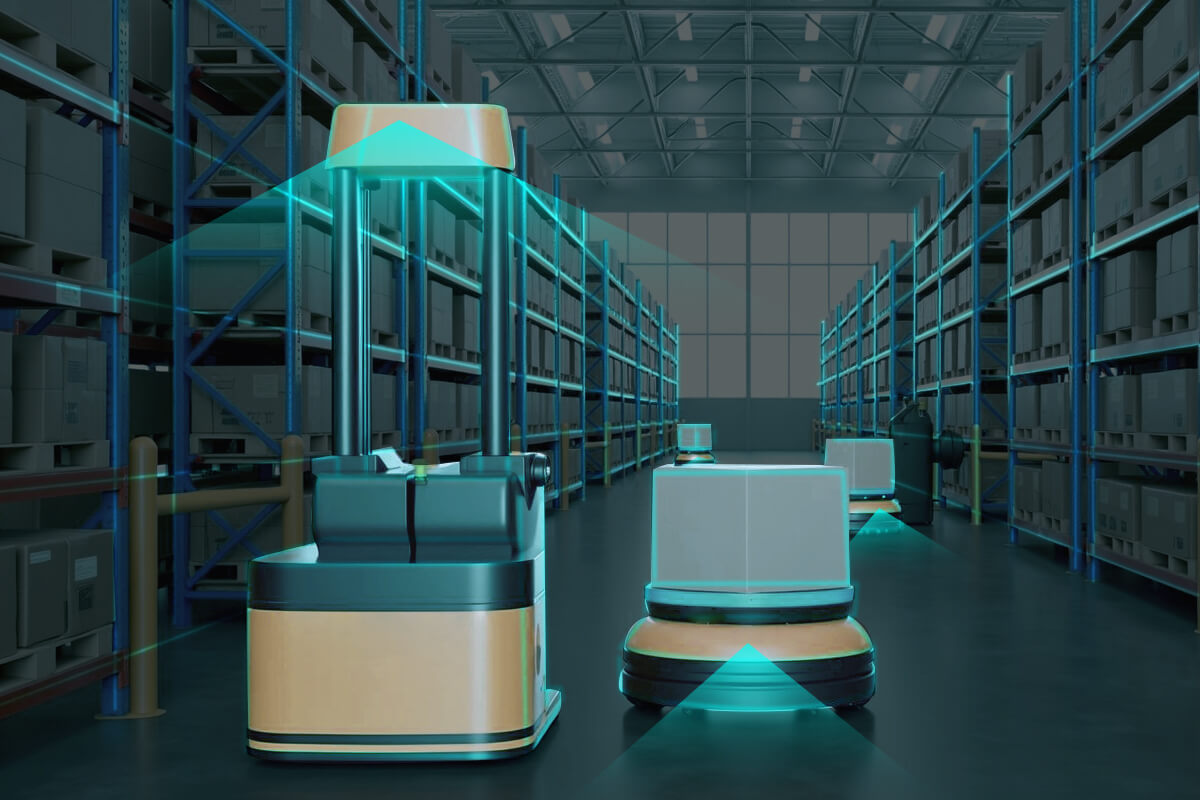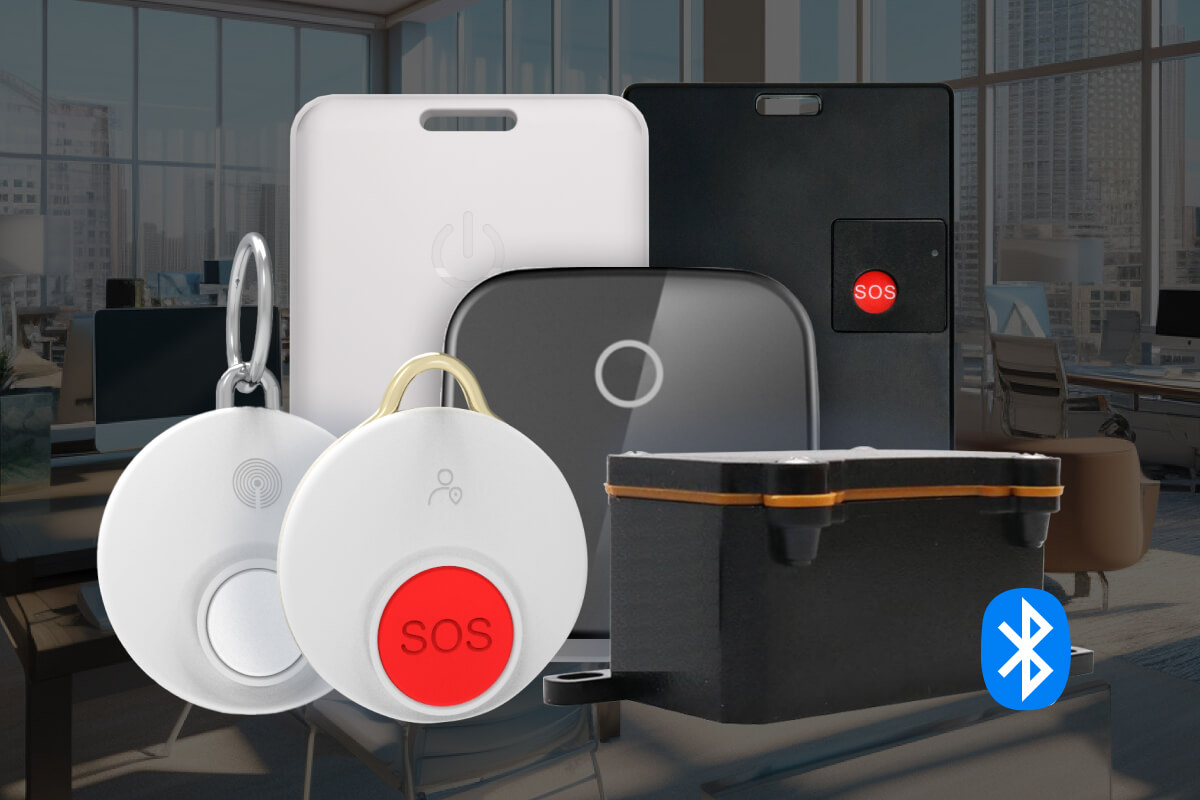The deployment of IoT in the retail industry is leading to a revolution in how businesses operate. Through the use of embedded system hardware such as smart sensors and gateways, combined with software and wireless protocols, IoT is able to connect physical networks of devices to the Internet.
Smart gateway can collect data on store temperature, lighting, energy usage, and security alarm systems, maintaining optimal store conditions and making energy management. BLE beacons can track locations of assets and inventory in real-time, making store managers informed when stock levels are low.
Proximity marketing beacons can also provide valuable information on foot traffic patterns, enabling retailers to optimize store layouts and improve customer flow. Retailers may also enhance the customer experience and boost sales by personalizing promotions and offers based on individual preferences by evaluating customer behavior data gathered from smart shelves or connected shopping carts.
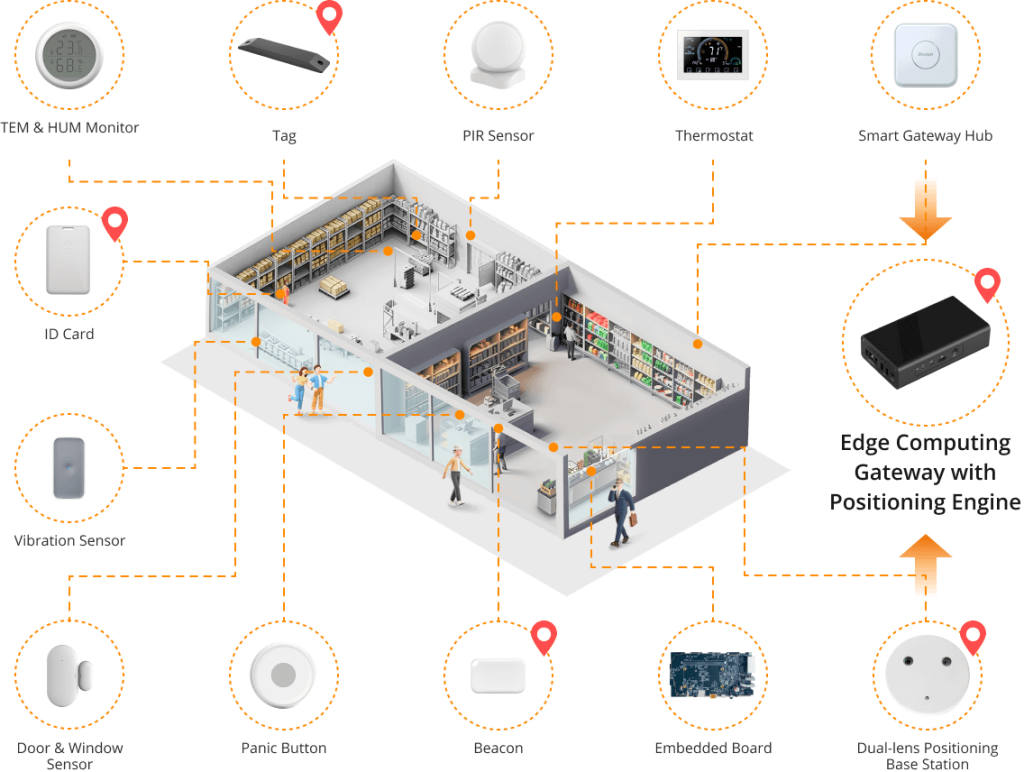
With IoT, retailers can collect data on a variety of operational elements, allowing for real-time indoor environment monitoring and management. The gathered data can be used for generating valuable data-driven insights and making decision.
Top 10 Must-to-know IoT Retail Examples
The widespread adoption of the IoT in the retail industry has resulted in numerous examples that demonstrate its potential. Here, we present the top 10 most widely seen and meaningful examples of IoT in retail. However, keep in mind that this is not an exhaustive list because IoT applications in retail are constantly growing and changing. It provide as a foundation for discussing the various ways that IoT is transforming the retail sector.
Dusun IoT specializes in offering hardware and wireless technologies catered to these particular use cases, making them an attractive option for retailer brands and system integrators interested in implementing IoT solutions for retail businesses. Our expertise can assist businesses in navigating the complexities of implementing IoT and achieving their goals.
1. Consistent Coffee&Tea Offerings at Brand’s Shops
Some may think that machine-made drinks are soulless. However, the digitalization and intelligence of the whole supply chain are an unavoidable and fast-moving trend in all industries, and the coffee and tea industries are no exception.
By leveraging IoT and edge computing technologies, coffee and tea shops can streamline their operations, ensure consistent quality throughout the entire stages of drink preparation, and enhance customer satisfaction. This is undoubtedly a definitive future for the industry, especially given how fiercely competitive the coffee and tea business is faced with and how important it is to be able to innovate products by blending popular beverage elements and capturing customer demands. Brands could choose to delegate the task of ensuring consistent product quality to the smart equipment.
For example, coffee shops now need to have exact control over the brewing temperature, time, and flow rate in order to match the brewing criteria for different coffee beans. By incorporating an embedded board with a Virtual Network Console (VNC) into the coffee machine, coffee shops can establish standardized brewing procedures to improve efficiency, monitor and collect usage data, which may be used for optimizing the taste to replicate the manual brewing flavor, or for remote control operations, ultimately facilitating efficient brand management for coffee shops.

Read case study here: IoT-enabled asset management in coffee shop
2. Device Management at Car Detailing and Repairing Shop
Keeping the shop space clean, secure, and visually pleasing is one of the primary daily tasks involved in auto detailing and maintenance. Many IoT technologies are available to assist simplify these tasks and provide a better overall experience for customers.
For instance, occupancy sensors can be used to better manage cleaning and disinfection schedules by identifying locations that are often used.
During the process of repairing or detailing vehicles, mechanics often use multiple tools and arrange them carelessly, which leads to higher cost including the time spent by technicians searching for tools and the expenses of tool repurchasing. By utilizing tools such as BLE-enabled smart wrenches, Bluetooth RSSI positioning technology can be utilized to confirm if the smart wrenches are within range, helping mechanics improve efficiency.

Additionally, cars must be raised onto lifting frames for the purpose of repairing them, which poses a risk of collisions between the vehicle and the top of the lifting frame. To prevent such collisions and save customers’ cars from getting damaged, BLE-enabled distance meters can be mounted on the top of the lifting frame. The real-time distance data can be displayed on the user’s smartphone to perform monitoring and prevent needless reimbursement for car damage.
Read case study here: IoT-enabled smart car detailing shop solution
3. Equipment Predictive Maintenance at Supermarkets & Food Stores
Retailers may minimize the risk of equipment failure, maximize energy efficiency, and guarantee the quality and safety of perishable goods by utilizing IoT technology in retail stores’ equipment and system maintenance.
For example, in large supermarkets and food stores, retailers use smart sensors to monitor the temperature and condition of refrigerators, enabling proactive measures to be taken and preventing losses due to equipment failures. In addition to refrigerators, IoT gateways can be utilized to remotely control the HVAC systems in specific regions or individual stores. This helps reduce energy consumption and utility costs without detracting from the user experience.
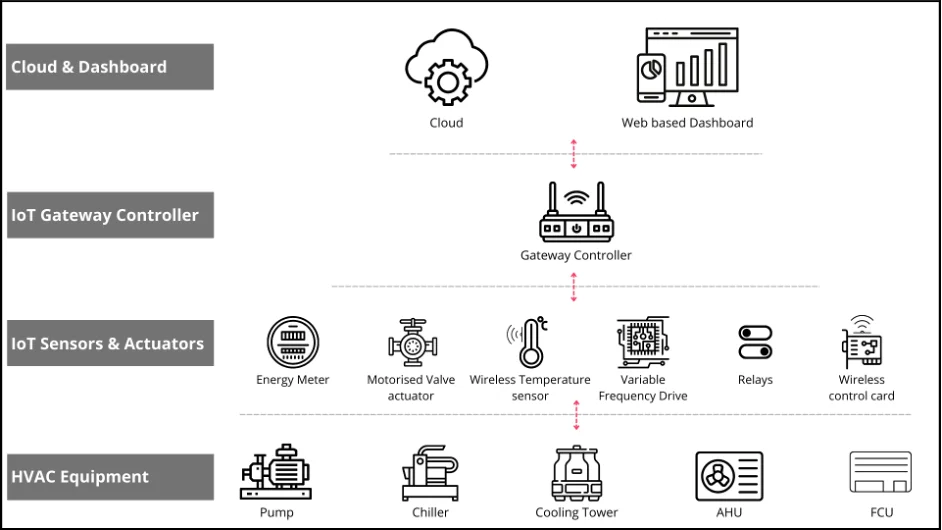
4. Inventory Management at Retail Establishments and Pharmaceutical Stores
By attaching RFID tags, BLE beacons, temperature and humidity sensors to products in warehouses, retailers can gather real-time inventory management data, like the seamless tracking of goods entering and leaving the warehouse. Many well-known department stores are already benefiting from the use of RFID tags, as they enhances inventory visibility and ensures that customers can easily find the products they need.
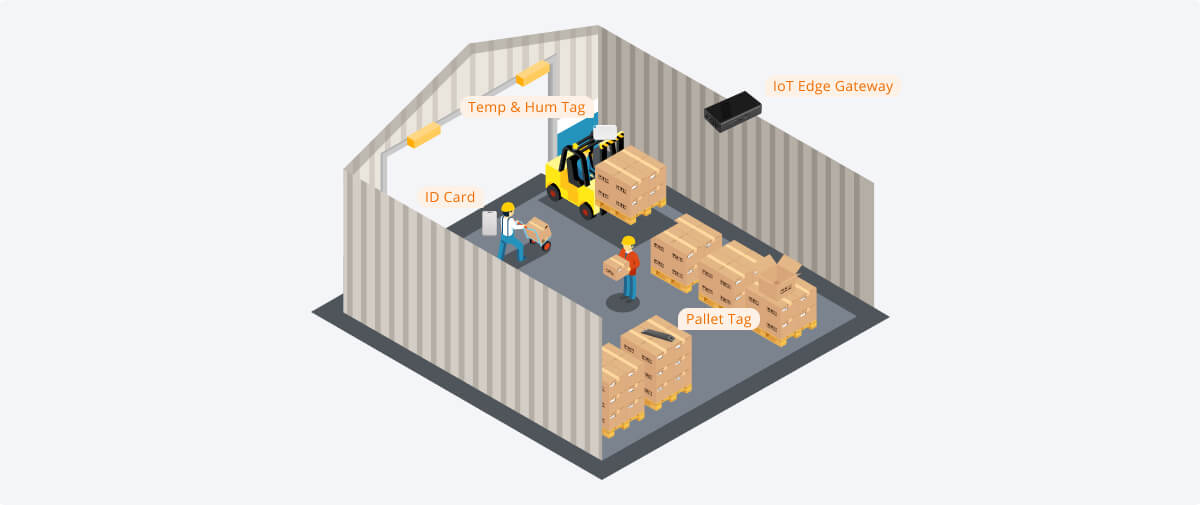
Another significant application of IoT in the inventory management is enhancing security. Smart Bluetooth card beacons that are integrated with warehouse access control systems allow managers to monitor human entry and leave times, employee activities, and mitigate theft risk. Furthermore, for products with specific temperature and humidity requirements, such as pharmaceuticals, BLE beacons with temperature and humidity monitoring capabilities can be used and real-time data can be uploaded to cloud platforms via Bluetooth gateways, facilitating efficient condition management and ensuring product quality.
5. Local Order Management at Fast Food Stores
Many fast food brands operate thousands of stores worldwide and high demand for effective order management. This requirement can be fulfilled through the use of third-party SaaS solutions. However, there are drawbacks to significantly depending on outside services, especially when order information contains important consumer behavior data that might help with business optimization. Because of this, some brands have decided to establish their own SaaS teams and are actively looking for reliable manufacturers who are capable of developing embedded products.
For these brands, Dusun IoT once made an all-in-one smart gateway solutions for reference. This noteworthy success story involves customizing a smart box capable of converting text into voice and connecting and controlling various smart devices. On the hardware of the smart gateway, the brand uses its own unique software.
Online orders can be sent via MQTT to the smart gateway, where they can be converted into configurable voice audio, including tone and speech rate (Note, Dusun IoT has Bluetooth Audio Chip solution avaliable, welcome to consult.). For announcement reasons, this audio is subsequently transmitted to the store’s Bluetooth speakers via the Bluetooth protocol.
6. Intrusion Alarm at Retail Stores and Shops
Regardless of the season, retail establishments and shop owners are always concerned about shoplifting. To protect themselves from external theft and shoplifting, stores require reliable retail security systems that are tailored to meet their unique requirements. Selecting the right intrusion alarm system is essential to avoiding false alarms and guaranteeing the store’s security all day long.
Dusun IoT, through its subsidiary brand Roombanker, offers comprehensive security alarm and home automation systems with a mobile app. Roombanker specializes in offering retail security alarm systems to renowned brands and retail outlets. These systems include a variety of easy-to-DIY smart devices, including PIR sensors, alarm keypads, under-counter panic buttons, door and window magnetic sensors, alarm sirens, and more.

By utilizing these devices , users can design their own anti-theft security system that meets their needs. For more detailed information regarding Roombanker’s intrusion alarm solutions, please visit its website.
7. Indoor Environmental Safety Monitoring
Keeping an eye on indoor environmental safety is a small investment that holds great value. Ignoring this detail might result in unfavorable events, such as overnight fires that cause store owners to suffer severe financial and personal losses. To mitigate such risks, installing affordable devices like 24/7 monitoring smoke detectors and water leak detectors in the store can provide crucial protection, especially during unattended hours.

Moreover, warehouses in grocery stores are easily susceptible to various hazards, including fire outbreaks. Even with on-site management, equipping these areas with smoke detectors and alarm sirens can significantly improve response times in case of a fire emergency, allowing store owners to take swift action and safeguard their premises.
8. Asset Tracking at Large Stores and Supermarkets
Just as hospitals must effectively manage the wheelchairs they lend out, large stores also face the challenge of tracking and managing their in-store assets like shopping carts and baskets. The laborious task of locating misplaced shopping carts can be a major headache for retailers, especially considering that each shopping cart can cost anywhere from $75 to $250, which means the constant loss and replacement of these items result in significant financial and operational burdens. Therefore, it is important to make sure that carts are placed and maintained properly.
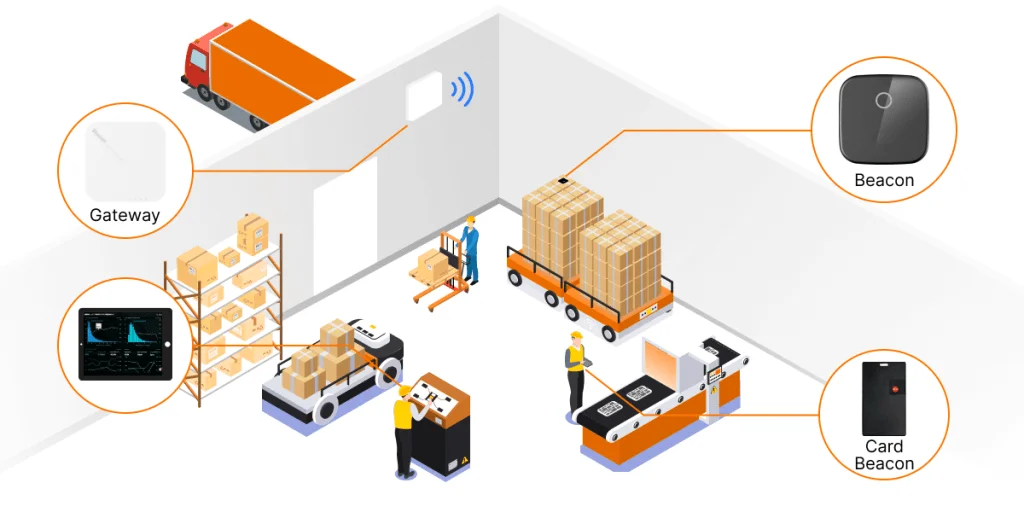
Thankfully, BLE tags provide a workable solution by allowing accurate tracking of scattered shopping carts and turning on an automated wheel locking mechanism when they are moved too far from the assigned region. This location tracking system ensures that there is always an adequate supply of carts for customers to use in addition to deterring theft. Retailers who put this method in place will be able to improve customer satisfaction, cut down on replacement cart expenses, and streamline their operations.
9. Personalized Shopping Experience
IoT technology contributes to creating a more tailored and engaging shopping experience, while also giving merchants the ability to make data-driven decisions that improve consumer satisfaction and operational effectiveness.
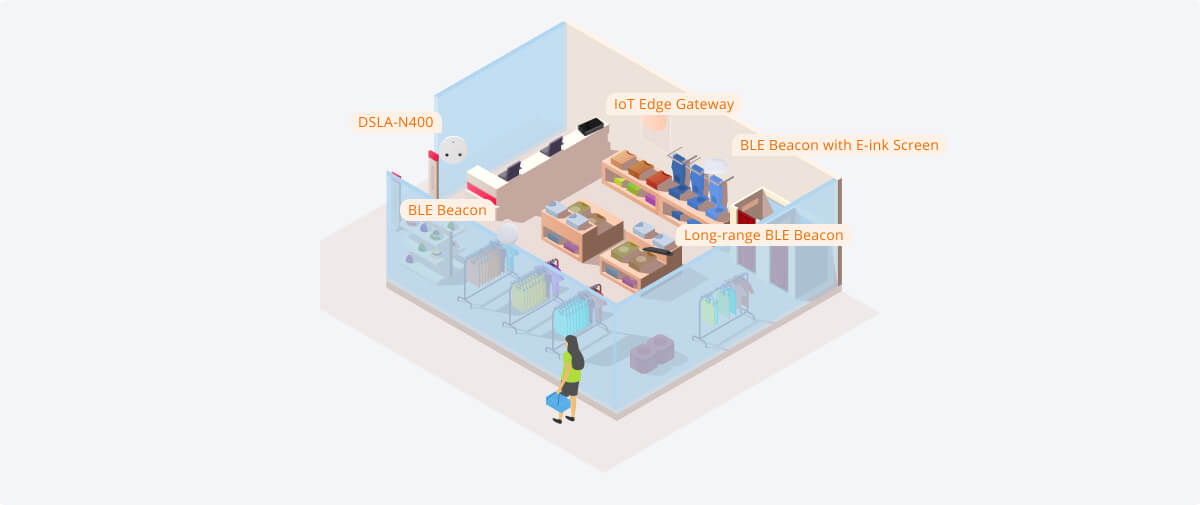
IoT devices are frequently used to enhance personalized shopping experiences. For instance, passersby in the vicinity can receive real-time store promotions and discounts straight on their cellphones thanks to Bluetooth beacons. In addition to informing current consumers about tailored discounts, exclusive events, and other pertinent information, this helps shops draw in new customers and encourage existing ones to take advantage of the offers.
When it comes to giving important information on shop traffic patterns and particular product area stay times, occupancy sensors are essential. By analyzing this data, retailers can optimize their store layouts, aisle arrangements, and space allocations, which will lead to more efficient sales planning and informed purchase selections. This data can also be used to track the length of time customers wait in the checkout line, giving retailers the opportunity to improve customer service by adding more self-checkout alternatives or modifying personnel numbers.
10. Smart Shelve Management
In the past, retailers used to dedicate significant time and effort to keep their product shelves organized. But thanks to developments in IoT technology, data can now be tracked and recorded directly on the products.
This brings several benefits. Firstly, it provides clear visibility into product details such as origin, production dates, and storage locations, allowing consumers to easily find the items they are looking for and enhancing their overall shopping experience. Secondly, it makes it possible for shops to compile important information like sales figures, expiration dates, and inventory status that can be utilized to guide marketing and promotional plans.
In several well-known supermarkets, IoT-enabled product management is already in place. Digital electronic price tags have taken the place of the conventional paper price tags at these establishments, streamlining the labor-intensive maintenance procedure. These digital price tags can be easily updated with IoT gateways, giving customers access to up-to-date information on product prices and expiration dates. At the corporate level, this centralized management strategy enhances operational effectiveness and makes decision-making easier.
Challenges & Solutions of Implmenting IoT in Retail Industry
Of course! The benefits of IoT technology are vast, as the examples I previously given show. However, it’s important to recognize that no technology is flawless. IoT raises additional issues as well. In order to optimize your IoT retail solution and maximize benefits while limiting risks, I have gathered some of the major challenges and their related answers below.
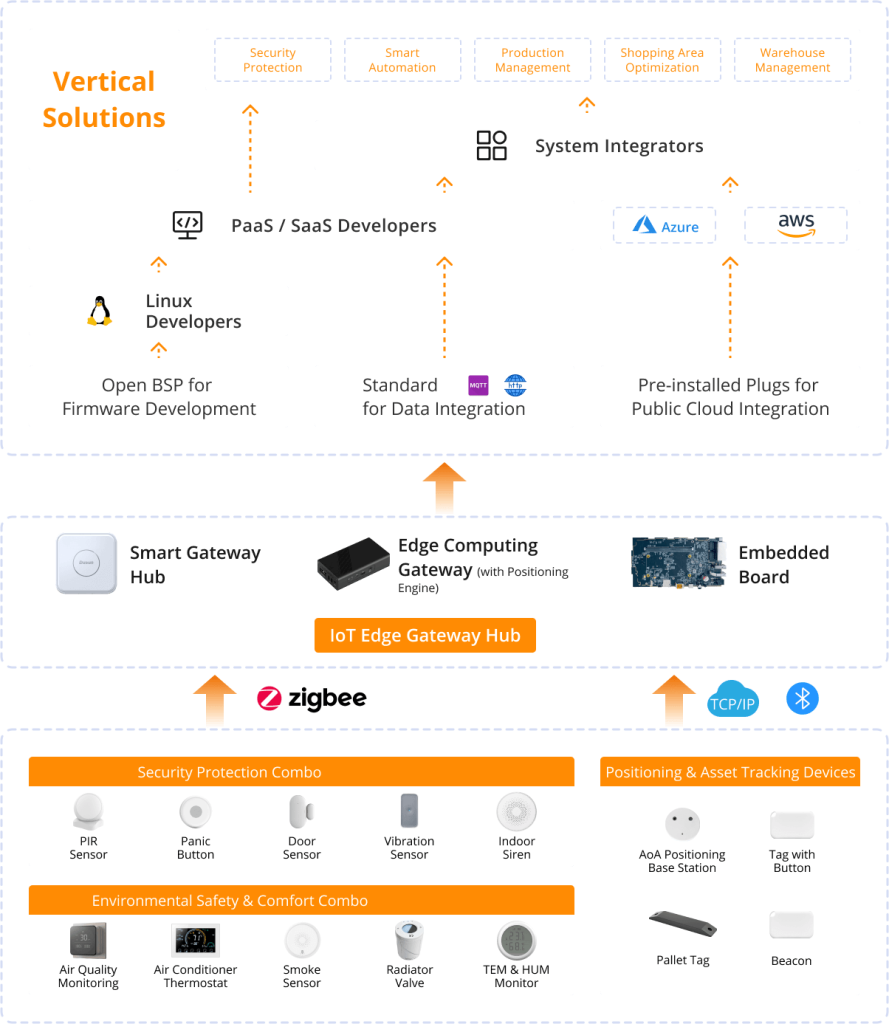
Purchasing or Customizing Smart Device for an IoT-enabled Retail Solution?
An important concern for implementing IoT retail solution is to consider whether to customize smart devices for an IoT-enabled retail solution or directly buy them off-the-shelf.
Smart end devices and a strong network infrastructure are necessary for the implementation of an IoT-enabled retail system. This calls for a robust network, cloud-based solutions, and terminal device solutions like the routers, smart gateways, and sensors from the previous examples.
You could go straight to the market and buy pre-built devices and use them for your solution. Or collaborate with a reliable vendor that specializes in intelligent IoT hardware development and manufacture, such as Dusun IoT. The second option is particularly suitable when it is challenging to find off-the-shelf hardware devices that precisely meet your business requirements.
It can also be wise to steer clear of making large upfront infrastructure investments in order to properly control costs. Alternatively, you might start making smaller-scale infrastructural adjustments. One possible place to start would be with IoT lighting control, which offers a measurable and obvious return on investment. You can progressively expand the IoT solution to handle more complicated areas of your retail operations as you see the benefits.
Data Security, Keep it in Your Own Hand or Rely on Third-party Service?
Many merchants take a cautious approach to privacy and security issues pertaining to the Internet of Things. When implementing an IoT-powered retail solution, it is frequently necessary to work closely with IoT software service providers. This means that customer data collected may pass through intermediaries, potentially leading to restricted access or limited customization. Furthermore, although gaining access to consumer data has a number of advantages for shops, it also puts them at risk of legal issues and network security breaches.
Because of this, a lot of brands are building in-house software teams in order to guarantee complete control over their data. They prioritize the inclusion of robust security mechanisms, such as secure passwords, in the design of the devices and sensors they use. Additionally, they concentrate on putting in place sophisticated security measures, such as proactive scanning for flaws and vulnerabilities in their IT infrastructure, frequent software updates, and end-to-end encryption. In this context, embedded hardware experts like Dusun IoT can provide valuable professional support.
Final Word
As the physical and digital worlds collide, the retail sector is going through a radical change. Integrating the Internet of Things into the retail industry has become more than just a trend—it is now a critical requirement for retailers to stay ahead in the competitive race. Despite the possibility of some challenges, a number of successful installations have demonstrated that IoT retail solutions provide organizations a myriad of benefits. From optimizing supply chains and inventory management to bolstering security measures, automating operations, and enhancing customer experiences, IoT is revolutionizing the retail landscape.
Retailers may make successful investments that guarantee flexibility and competitiveness in a market that is constantly evolving by embracing IoT technology. If you seek hardware solutions for your IoT retail strategy, look no further than Dusun IoT. Our team of experts specializing in embedded IoT hardware is poised to provide tailored and professional hardware design solutions to meet your specific needs.

